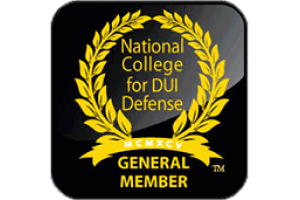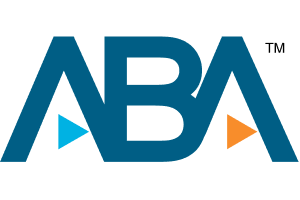Boating Under the Influence
A day on the water can be the perfect relaxation, and drinking beers on your pontoon boat is a dream from a country song. But if you’re intoxicated and start to pilot your boat to the next lakeside gathering or back to shore, you could be in serious trouble. You could be charged with Boating Under the Influence, a Class 1 Misdemeanor that has a maximum punishment of one year in jail and a $2500 fine, in addition to alcohol classes and suspension of your boating license! If you’ve been charged with boating under the influence or reckless boating, call a Virginia attorney today who is knowledgeable about these very specific crimes and offenses.
Who Enforces the Laws for Boating Under the Influence?
In Virginia, boating is regulated by the Department of Game and Inland Fisheries (DGIF), which also oversees hunting and fishing licenses and regulations. Any uniformed officer working in their county can enforce the laws against boating under the influence, as long as you’re boating on waters within that county. (See Va. Code Sec. 29.1-202). There are also law enforcement officers that work for DGIF, who are called Conservation Police Officers. In other states you might know similar law enforcement officers as game wardens, but Conservation Police Officers have much broader responsibilities than traditional game wardens. They also enforce the laws against boating under the influence, reckless boating, and improper boating. (See Va. Code Sec. 29.1-203, 29.1-745). They also enforce other boating safety rules and regulations, as well as boating equipment and registration requirements (See Va. Code Sec. 29.1-701, 29.1-745). In Virginia, Conservation Police Officers often wear uniforms that are an outdoorsy dark olive green, instead of the blue, gray, or black that many other police departments in Virginia wear.
What is Boating Under the Influence?
Similar to the crime of driving under the influence, Virginia Code Section 29.1-738 makes it a crime to operate a watercraft or motorboat while under the influence of alcohol or drugs. The law includes the normal “legal limit” on blood alcohol content, as well as limits for blood concentrations of cocaine, meth, PCP, and MDMA. The law against boating under the influence says: “No person shall operate any watercraft, as defined in § 29.1-733.2, or motorboat which is underway (i) while such person has a blood alcohol concentration at or greater than the blood alcohol concentration at which it is unlawful to drive or operate a motor vehicle as provided in § 18.2-266 as indicated by a chemical test administered in accordance with § 29.1-738.2, (ii) while such person is under the influence of alcohol, (iii) while such person is under the influence of any narcotic drug or any other self-administered intoxicant or drug of whatsoever nature, or any combination of such drugs, to a degree which impairs his ability to operate the watercraft or motorboat safely, (iv) while such person is under the combined influence of alcohol and any drug or drugs to a degree which impairs his ability to operate the watercraft or motorboat safely, or (v) while such person has a blood concentration of any of the following substances at a level that is equal to or greater than (a) 0.02 milligrams of cocaine per liter of blood, (b) 0.1 milligrams of methamphetamine per liter of blood, (c) 0.01 milligrams of phencyclidine per liter of blood, or (d) 0.1 milligrams of 3,4-methylenedioxymethamphetamine per liter of blood.”
What are the Penalties for Boating Under the Influence?
Just like a charge of driving under the influence, a charge of boating under the influence involves serious consequences. Boating under the influence is a Class 1 Misdemeanor, which means that you could go to jail for up to 12 months and pay a fine up to $2500 if you plead guilty or are found guilty of boating under the influence (Va. Code Sec. 29.1-738). You would also have to complete classes through the Virginia Alcohol Safety Action Program (VASAP) (Va. Code Sec. 29.1-738.5), and your boating license would be suspended for one year for a first offense, or three years for a second offense (Va. Code 29.1-738.4). But, unlike a case for driving under the influence, the judge can allow you to operate a boat with your boating license as long as you enter into and successfully complete classes through the VASAP program (Va. Code Sec. 29.1-738.5).
Perhaps most importantly, the judge cannot suspend your driver’s license for a charge of boating under the influence. You might not be able to drive a boat for a year, but you will still be able to ride in a boat, and you will still be able to drive your car or truck for any reason.
If you’ve been charged with boating under the influence, it is important that you have the help of an experienced Virginia criminal defense attorney who is familiar with these statutes. Charges for boating under the influence are not as common as charges for driving under the influence, so make sure you choose a lawyer who is familiar with cases involving boating under the influence, not just driving under the influence.
How does an officer decide to stop me for boating under the influence?
You’re most likely to be suspected of boating under the influence if you get into some kind of accident or if the Conservation Police Officer has some other reason to interact with you, like problems with your boat’s registration.
In cases of driving under the influence, clients are often stopped by police officers for swerving in their lane, going above the speed limit, or other traffic infractions. But when you’re out on the water, there usually aren’t lane markings, speed limits, or traffic lights! A police officer would have to look at other behavior to have “reasonable suspicion” to believe that you’ve done something illegal. It is usually very difficult, though not impossible, for a police officer to convince a judge that your boating behavior is caused by something illegal. If the officer doesn’t have a legal reason to stop you, then it is possible that we can have a successful defense to your case. It is important that you have an experienced lawyer who knows what kinds of actions are enough to give the officer that reasonable suspicion to stop you.
Now I’m Face-to-Face with the Police Officer. What Should I Do?
But, if the police officer has another reason to talk and interact with you, like a boat wreck or a problem with your boat’s registration, then the officer might be able to develop that reasonable suspicion of criminal activity. If the officer has that reasonable suspicion, then he or she can have a reason to try to get more information to decide whether or not to arrest you. For example, if the officer sees empty beer cans on the boat and smells alcohol on your breath, he or she might ask more questions about how much you’ve had to drink, or ask you to do some “field sobriety tests” (FSTs). These questions and tests are always optional. You are never required to answer a police officer’s questions, and you are never required to complete the field sobriety tests. You can simply state that you don’t want to answer any questions or take any tests. We advise all of our clients, friends, and family to decline to answer questions or take any tests.
How Does an Officer Decide Whether to Arrest Me for Boating Under the Influence?
A police officer must have “probable cause” to believe you’ve done something illegal before he or she can arrest you. “Probable cause” means that the officer has enough information to show to a judge that you have probably committed a crime. In a case of boating under the influence, the officer will most often try to get enough information from you to find that probable cause. The officer will look at how you operated your boat, how you look and act when talking to him or her, and the answers to questions. The officer will also try to get you to take field sobriety tests (FSTs) so that he or she has more information about whether you might be intoxicated.
If the officer convinces you to take the tests, the FSTs might include following a pen with your eyes (horizontal gaze nystagmus or HGN), walking in a straight line or standing on one leg if you’re on the shore, or taking a preliminary breath test (PBT). There are very specific ways that the police officers must give these tests. Police officers are trained on how to give these tests, but sometimes they forget their training or don’t follow it in every case. It is important that you hire a lawyer who is familiar with these FSTs and how they should be performed, and how judges react to the tests and their results.
Do I Have to Take the Preliminary Breath Test?
Before he or she arrests you, the police officer will ask you if you want to blow into a small, hand-held device for a preliminary breath test. Again, this test is entirely optional. The police officer has to offer it to you, but you do not have to take it. Virginia Code Section states that, in cases of boating under the influence, “Any person who is suspected of a violation of subsection B of § 29.1-738 or § 29.1-738.02 shall be entitled, if such equipment is available, to have a preliminary breath analysis for the purpose of obtaining an analysis of the probable alcohol content of his blood. The procedures and requirements of § 18.2-267 shall apply, mutatis mutandis.”
If you did take the preliminary breath test, the officer must show in court that he or she used a device that is approved by the Virginia Department of Forensic Sciences, that has been appropriately maintained and calibrated. If the officer cannot show that he used the right device, then we may be able to attack your arrest for boating under the influence. If you were arrested for boating under the influence and you took a preliminary breath test, it is important that you are represented by a lawyer who knows the requirements that the police officers must show in court for these preliminary breath tests.
Do I Have to Blow Into the Machine After I Get Arrested?
If you get arrested, the police officer will take you to give a sample of your breath or your blood. If you unreasonably refuse to give a breath or blood sample after you are arrested, the judge can’t send you to jail but the judge can suspend your boating license for 12 months for a first refusal or 24 months for a second refusal. Unlike refusing to give a breath or blood sample after being arrested for driving under the influence, the judge cannot suspend your license to drive a car or truck if you refuse to”blow” after you’re arrested for boating under the influence.
Virginia Code Section 29.1-738.2 says “Any person who operates a watercraft or motorboat which is underway upon waters of the Commonwealth shall be deemed thereby, as a condition of such operation, to have consented to have samples of his blood, breath, or both blood and breath taken for a chemical test to determine the alcohol, drug, or both alcohol and drug content of his blood, if such person is arrested for operating a watercraft or motorboat which is underway in violation of subsection B of § 29.1-738, § 29.1-738.02, or of a similar ordinance of any county, city or town, within three hours of the alleged offense. Any person so arrested for a violation of clause (i) or (ii), or both, of subsection B of § 29.1-738, § 29.1-738.02, or of a similar ordinance, shall submit to a breath test. If the breath test is not available, or the person is physically unable to submit to the breath test, a blood test shall be given. The accused shall, prior to administration of the test, be advised by the person administering the test that he has the right to observe the process of analysis and to see the blood-alcohol reading on the equipment used to perform the breath test. If such equipment automatically produces a written printout of the breath test result, this written printout, or a copy thereof, shall be given to the accused in each case.”
Can I Choose Whether I Want to Give a Breath or a Blood Sample After I’ve Been Arrested for Boating Under the Influence?
No. You might have heard that you should ask to give a blood test instead of a breath test. Some years ago, the laws in Virginia did allow you to choose one or the other, and you might have that choice in some other states. But in Virginia, the officer can’t let you choose and has to offer you a breath test unless it’s unavailable, you’re unable to give a breath sample (like if you’re unconscious in the hospital), or if the police officer has a good legal reason to think that you have more than just alcohol in your system.
Reckless Boating
Boating on the bountiful waters of Virginia can be a very relaxing way to spend a day, or it can be exhilarating to engage in fast-paced water sports. Unlike driving a car, there are very few regulations on exactly how you are supposed to operate your boat. There usually aren’t lane markings, speed limits, or traffic lights that tell you how and where you can operate your boat. But just like you can get a ticket, or even arrested, for reckless driving, you can also get charged with reckless boating.
What is Reckless Boating?
Virginia Code Section 29.1-738 tells us that “No person shall operate any motorboat or vessel, or manipulate any skis, surfboard, or similar device, or engage in any spearfishing while skin diving or scuba diving in a reckless manner so as to endanger the life, limb, or property of any person.” This is commonly referred to as simply “reckless boating.”
Often, a charge of reckless boating is filed after some sort of boat collision. But a person can also be charged with reckless boating where there is no actual damage to “life, limb, or property” if there are witnesses, including police officers, who can tell the judge about boating behavior that is so dangerous that it puts others in danger of being hurt. When there is an actual collision, the Commonwealth’s Attorney will have to prove that it was your reckless behavior that caused the damage. For example, if the prosecutor can’t prove that it was excessive wakes from your boat instead of excessive wakes from another boat that caused a person to fall overboard, then there is not enough evidence to find you guilty of reckless boating. See Camp v. Commonwealth, 14 Va. App. 879 (1992).
There are less reckless boating cases in courts than there are reckless driving cases, so it is likely that a judge will look at your reckless boating case using many of the same rules and laws that he or she uses to look at reckless driving cases. If you’re charged with reckless boating, you should be represented by a lawyer who is familiar with the laws regarding both reckless driving and reckless boating, so that he or she can effectively, zealously, and enthusiastically defend you in court.
What are the Penalties for Reckless Boating?
Reckless boating is a Class 1 Misdemeanor, which means that if you plead guilty or are found guilty, you could go to jail for up to 12 months and pay a fine of up to $2500. The judge is also required to suspend your boating license for 12 months for a first offense, or for 24 months for a second offense. Virginia Code Section 29.1-738.4 applies to both boating under the influence and reckless boating, and tells us “In addition to any other penalties authorized by law, upon conviction of any person for violation of any provision of § 29.1-738, the court shall order such person not to operate a watercraft or motorboat which is underway upon the waters of the Commonwealth for a period of twelve months from the date of a first conviction or for a period of three years from the date of a second or subsequent conviction within ten years of a first conviction. The period specified in any such order prohibiting operation of a watercraft or motorboat which is underway imposed pursuant to this section shall run consecutively with any such order imposed for refusal to permit a blood or breath sample to be taken.” Unlike a charge for recklessly driving your car or truck, the judge cannot suspend your driver’s license if you’re convicted of reckless boating.
Also unlike a charge for reckless driving, if you’re convicted of reckless boating the judge does not have a choice about whether or not to suspend your boating license for a year. But the judge can agree to allow you to operate your boat if you take classes with the Virginia Alcohol Safety Action Program (VASAP). The judge can allow you to take the VASAP classes and keep your boating license even if your reckless boating charge had nothing to do with drugs or alcohol. Virginia Code Section 29.1-738.5 tells us that “Any person convicted of a violation of subsection B of § 29.1-738, or any ordinance of a county, city or town similar to the provisions thereof, or any second offense thereunder, shall, with leave of court or upon court order, enter into an alcohol safety action program certified by the Commission on the Virginia Alcohol Safety Action Program (VASAP) in the judicial district in which the charge is brought or in any other judicial district upon such terms and conditions as the court may set forth. In the determination of the eligibility of such person to enter a program, the court shall consider his prior record of participation in any other rehabilitation program. Suspension of the penalties imposed pursuant to § 29.1-738.4 shall be conditioned upon successful completion of such a program.”
Reckless boating is a relatively uncommon charge, and not every attorney is knowledgeable about what the prosecutors must prove in court and what are the consequences to you if you’re convicted. If you have a charge of reckless boating, it is important that you are represented by a lawyer who is familiar with the consequences of reckless boating so that he or she can get the best possible outcome for you.
What About Improper Boating?
A charge of reckless boating can be reduced to the charge of improper boating, just like a charge of reckless driving can be reduced to improper driving. Only a judge can amend or change your charge from reckless boating to improper boating; a police officer doesn’t have the power to write you a ticket for improper boating. Unlike improper driving, improper boating is still a criminal offense that will permanently stay on your criminal record, but it is only a Class 3 Misdemeanor. That means that the judge cannot send you to jail or suspend your boating license, and the maximum fine is only $500. Virginia Code Section 29.1-738.01 defines improper boating, and says “upon the trial of any person charged with reckless boating where the degree of culpability is slight, the court in its discretion may find the accused not guilty of reckless boating but guilty of improper boating.”
Improper boating can be a very favorable outcome if the prosecutor can technically prove that you were boating recklessly, but the boating behavior and damages, if any, were not very serious. The prosecutor can recommend to the judge that he or she change your case to improper boating instead of reckless boating. But even if we are not successful in convincing a prosecutor to give us a favorable outcome, we can still argue to the judge that your case is not a very serious one and that you should be found guilty of the lesser charge of improper boating instead of reckless boating. Because only a judge can make the final decision about whether to change your charge to improper boating, it is important that you have a highly skilled attorney to represent you in court so that you can get a favorable outcome whether the prosecutor agrees to it or not.








